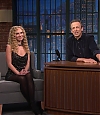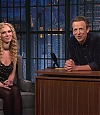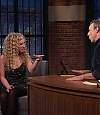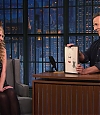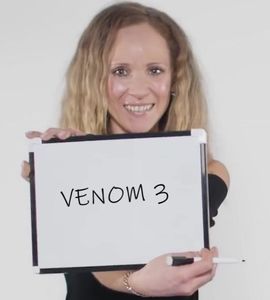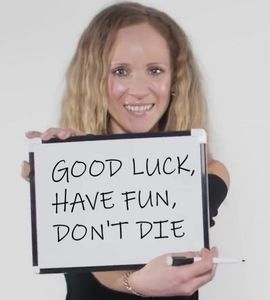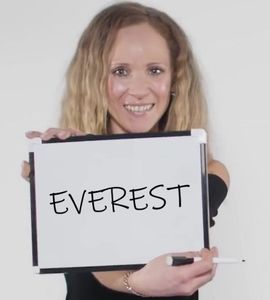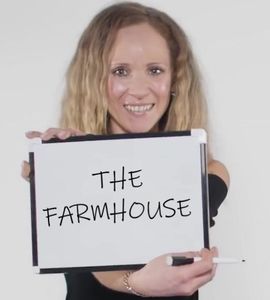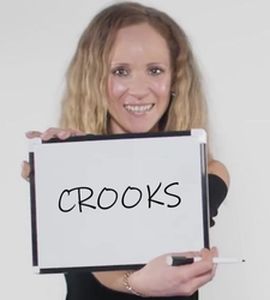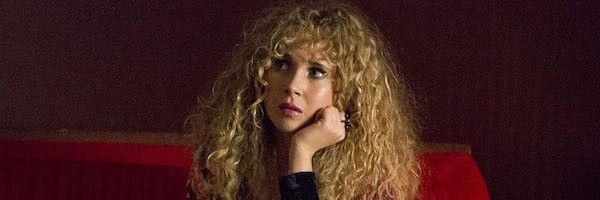From executive producers Martin Scorsese (who directed the pilot), Mick Jagger and Terence Winter, the new HBO drama series Vinyl (which has already been picked up for a second season), set in 1970s New York, is a ride through the sex-and-drug-addled music business at the dawn of punk, disco and hip-hop. And it’s all seen through the eyes of record label president Richie Finestra (Bobby Cannavale), who is trying to save his company and his soul without destroying everyone in his path. The series also stars Olivia Wilde, Ray Romano, Juno Temple, James Jagger, Ato Essandoh, Max Casella, P.J. Byrne, Jack Quaid, J.C. MacKenzie, Birgitte Hjort Sørensen and Paul Ben-Victor.
During this exclusive phone interview with Collider, actress Juno Temple (who plays Jamie, an ambitious assistant in the A&R Department of American Century whose passion for music could possibly help propel her career) talked about being in awe of her character, auditioning for Martin Scorsese, being directed by him for the pilot, what made this one of the most fulfilling experiences of her life, what makes her character so ambitious, whether she’s really that fearless, what she personally thinks of The Nasty Bits, and how excited she is to learn about where things will go in Season 2.
Collider: This show is so much fun and this character is such an absolutely perfect role for you.
JUNO TEMPLE: She is, right?! I feel like I’m slightly in awe of her. I want to be her best friend, back in ‘73, for sure.
Could you have imagined, at any point in your career, that you’d be working on a project that was being produced by Martin Scorsese and Mick Jagger?
TEMPLE: No! Even my agents are dumbfounded. There was a very funny moment where they were like, “They really loved your tape, but they just have to run it past Mick Jagger. I’ve never heard that, in my career, before.” It was really great! They’re a match made in heaven, especially for this project. They’re two people who were doing such brilliant things in the ‘70s, and who were really stomping around the ‘70s, making extraordinary films and albums that are going to last for eternity, and inspired probably 100% of the music industry and the film industry today to do what they’re doing.
When you got a phone call telling you that Scorsese wanted you to read for him, what was your reaction, and what was the actual experience like?
TEMPLE: It was one of those reactions where I was like, “You know what? Whatever happens, and whether this goes anywhere or not, I get to be in a room and be directed by this man for 15 or 20 minutes. That’s going to be one of those things that I will never forget, and that I will tell my grandchildren and great-grandchildren about.” Obviously, I was nervous. It wouldn’t be true to myself to not say that. But, it was one of those moments where I wanted to go in and enjoy it. Of course, you want the part, but you also want to so enjoy that moment, in case it’s just that moment that you get to take home with you. And the experience was nerve-wracking. I was clad in all of my ‘70s gear and I tried to look as ‘70s as possible. It was quick and I blacked out a ton of it, but I do remember getting a bit of direction from him. I was so nervous before I went in, and then I did the audition and was like, “Holy shit! Oh, my god! That was it. Wow!” It was a moment I’ll never forgot, but then the fact that I got to go in and work with him for six weeks afterwards was amazing.
This is your first TV project. Had you been looking for a cool character that you could explore for a longer period of time, or was it just this project?
TEMPLE: I hadn’t really even been thinking about TV. To me, it seemed like such a commitment, almost like a marriage. For being in my early 20s, I just wasn’t sure. I still do love independent film and to be able to be like, “I don’t know where I’m going to be next week, but I’m excited about where I end up.” But I read the pilot for this and was just like, “Oh, my god! I want to be a part of this.” And what was really cool was that, after shooting the first season, I really enjoyed the journey that you go on with your character, and the fact that you get to spend that much time with a creature that you are creating, along with these masterminds that are helping you create it. It was one of the most fulfilling experiences of my life, actually.
Were you ever concerned, with all of these men involved, that they wouldn’t know how to properly tell this woman’s story in a way that did her justice?
TEMPLE: No, that wasn’t a concern for me because there were also some incredible female writers in the writing room, too. I also think that all the men involved in the project really, really wanted to create these extraordinary female characters because behind every strong man is an even stronger woman. These men are so appreciative of females and also so love these characters that they’ve given Olivia [Wilde] and I. They’re these really, really smart and interesting and very, very proud to be female characters, and I love that. They really stand out in this very male, dog-eat-dog world, and they have such a great voice that they’re not afraid to use. I think that’s so interesting and so inspiring to play.
When I spoke to Olivia Wilde about her role in the show, she said that it was a really collaborative process and that it’s important to her to be vocal about her ideas for characters that she’s playing. Do you like to take that same approach, as far as letting them know how you see the character?TEMPLE: To be honest with you, I didn’t really because I was so excited about the direction that she was going. There were certain moments where maybe I would suggest a piece of dialogue or a reaction, and then we’d talk about it. Sometimes I made sense and sometimes it was like, “Oh, I’m sorry, that was actually a really stupid idea.” But, I was so excited for the journey that they were taking Jamie on. The writers are also inspired by watching the previous episodes. They do see what you’re bringing to the character, too, which is so cool. That means that without me even opening my mouth, by playing Jamie, I’m inspiring the writers to take the character on a particular journey.
When I spoke to Ray Romano about working with Martin Scorsese on the pilot, he talked about how much he loved the attention he paid to every little detail, but also how much he gave the actors room to do their thing and made everyone feel so comfortable. Was that your experience, as well?
TEMPLE: Oh, completely! I also think he cast it in a way where he really felt that us, as humans, could have been these characters, back in that time. And his attention to detail was unbelievable. He pays extreme close attention to the scene while it’s happening, and sometimes he’d give you a minute piece of direction, but he’d still let you do your thing. He loves when accidents happen. For example, in the pilot, when Jack Quaid, who plays Clark, accidentally hit me in the face with the headphones, that was a complete accident. You could hear Marty from video village just burst out laughing, and you just knew that was the take he was going to use. It made me genuinely mad and it made Jack genuinely panic, and it was so great. He loves happy accidents like that. He so loves actors and loves working with actors that he is excited when they go off and do their thing, but at the same time, he is excited to collaborate with them. His energy is unbelievable. He has the energy of ten 10-year-olds. The passion that he has for that time period, for filmmaking and for music is explosive. I’m sure it’s like that on every single project with him, but with this, he was so excited about the music and it was really titillating to be a part of. The special thing about him is that when you have a conversation, he loves talking about film. If he suggests a film for you to see, within 20 minutes, there is a burned DVD of the film that you’ve been talking about, in your trailer. I have a whole new collection of these extraordinary films that I probably wouldn’t know how to find, but that he gave to me, and we all have that from Marty.
What do you think it is about Jamie that made her want to get involved in such a cutthroat male-dominated industry, and that also makes her so ambitious?TEMPLE: I think there’s something she can relate to with Richie Finestra. With her upbringing, she’s definitely very different to that. She’s a child of the revolution of the late ‘60s and early ‘70s, and her parents really were not. As the show progresses, you’ll get to learn a little more about that. Music was probably something that was unbelievably important to her and helped her in moments where she didn’t feel anyone understood her, and I think that’s something that happened with Richie. That really inspires her to want to get involved with music and to find music that she feels she can put out in the world to help people the way she was helped through music. That’s why she gets so excited about The Nasty Bits. They might not be the most talented band you’ve ever seen, and they can’t fucking play their instruments, but what they’re doing viscerally affects a crowd. I love that, in the pilot, she notices that even though the crowd aren’t being like, “Oh, my god, we love you!,” it causes this manic, angry reaction, which is an action, in and of itself. It heats up the room in a way that I don’t think she’s ever witnessed before. What’s cool about her is that most people wouldn’t have noticed that. They would have been like, “I don’t think there’s anything going on here.” I think that’s why she connects with Richie. Richie would have understood that. She’s excited about a movement that speaks to her, and I think she thinks it’s going to speak to her generation, too.
Jamie is clearly passionate about The Nasty Bits. What would you personally think of this band, if they were really a band? Do they align with your taste in music?
TEMPLE: Absolutely! Punk was played in my household since I can remember, so punk was a part of my blood. Also, after shooting the pilot, Jimmy Jagger was in a band called Turbogeist and I went to see them live, and they were so brilliant. It was definitely a similar vibe to The Nasty Bits, so Juno would definitely be a Nasty Bits fan. And Jimmy, himself, is a music encyclopedia and a huge punk fan, down to his core. He also so enjoyed being Kip and creating that persona, and being immersed in this punk universe.
How will the relationship between Jamie and Kip evolve?TEMPLE: They have a relationship that I think is really, really brilliant and very real. She knows that she has got a golden ticket there, but I also think she does like him, too.
This was an era of anything goes, and this seems to be a show where anything goes. Did you have any moments this season that felt particularly wild, in that sense, and are you bracing yourself for more of that in Season 2?
TEMPLE: I’m definitely bracing myself for more of that. In Episode 2, there was that moment where one of the artists comes into Richie’s artists and lifts up his coffee cup, and there is a little baggie of cocaine under there. And then, there are these moments that aren’t afraid to show the downside of that universe, and how drugs make you a maniac. In the 1970s, sexuality also changed for women. You had abortion and birth control had been legalized, so women could approach sex more like men. That was pretty liberating, and I’m sure that will continue into Season 2. I’m a huge fan of the ‘70s anyway, so I knew it was going to be anything goes. I know what I signed onto.
Jamie seems so fearless. Is she really that fearless?
TEMPLE: Yeah, I do truly think she’s fearless, but I think it comes from a place of true passion. Everyone is fearful of some things, but I think she really, really is that, in her heart of hearts. I think she really believes and wants to make a statement. She wants to do things differently to the way her parents did.
Well, congratulations on your Season 2 pick-up, and I can’t wait to see where Jamie’s passion and enthusiasm takes her.
TEMPLE: Me too! I can’t wait to explore her more. I can’t wait to see where they take her.
